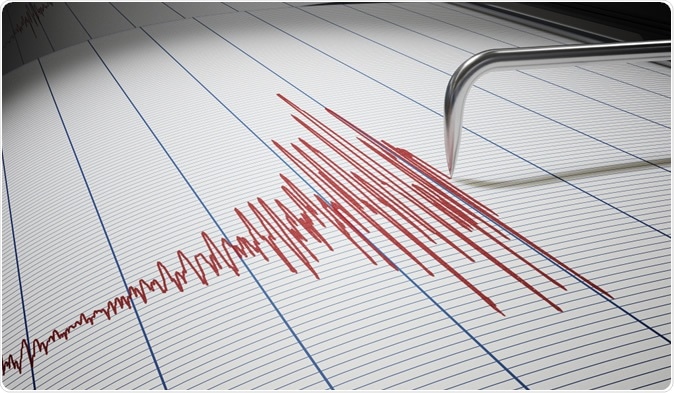The coronavirus disease (COVID-19) global pandemic has changed many things across the globe bringing chaos to lives and economies. However, efforts to curb the spread of the virus, have lowered pollution levels, carbon emissions, and oceans and rivers appear cleaner. Now, it seems that the lockdown efforts have also affected the planet's movement.
With roughly one-third of the world's population in lockdown, the planet is quieter. The reduction in the hum of daily human activity has led to a decrease in Earth's crust vibrations, a team of scientists explained in an article published in Nature.
Vibrations of human noise
According to the scientists at the Royal Observatory of Belgium in Brussels, a noise reduction of this magnitude is only experienced for a short moment each year at Christmas time.
The reported a significant drop in seismic noise, the buzz of vibrations in the planet's crust that as a result of human activities being shut down during the coronavirus disease pandemic. Anthropogenic seismic noise or sounds are vibrations created by human movement through activities such as transportation, travel, concerts, and other big sounds.

Seismograph. Image Credit: Vchal / Shutterstock
Traffic, trains, the sound of machinery, and electric power lines, among others, can influence vibration levels. The differences can be seen between holidays and working days, and day and night.
Seismometers are instruments that respond to ground motions, including volcanic eruptions and earthquakes or tremors. The data recorded from the equipment is typically used to locate and characterize earthquakes and analyze the internal structure of the planet.
Changes in sound
Before the coronavirus outbreak, Kenmore Square's acoustic environment, which is usually a bustling intersection, is about 90 decibels during rush hour. During widespread lockdown across various countries, the reading was just at 68 decibels. Further, the team studied some spots in the Fenway Park area, has a reading of 30 decibels.

Kenmore Square, Boston. Image Credit: Marcio Jose Bastos Silva / Shutterstock
Lockdowns were imposed to contain the spread of the virus, and if they continue in the coming months, the city-based detectors across the globe may be better at detecting the earthquake aftershock locations.
"You'll get a signal with less noise on top, allowing you to squeeze a little more information out of those events," Andy Frassetto, a seismologist at the Incorporated Research Institutions for Seismology in Washington DC, said.
The reduced noise and seismic activity could benefit seismologists to study the Earth's crust through studying background vibrations. Also, quieter conditions, like for as long as seven months, can be a good thing. Noise pollution has been tied to various diseases such as sleep problems, stress-related disorders, high blood pressure, and other health problems.
Scientists can have the unique opportunity to listen to the planet's natural sounds, without the background noise of people. This way, they can have baseline data for future studies. Further, without the noise people create due to daily activities, scientists can also detect smaller earthquakes, which are otherwise not heard.
Coronavirus global numbers
The coronavirus disease (COVID-19) has so far infected more than 1.27 million people and killed more than 69,000 people. The number will continue to rise as more countries grapple with the virus, with the United States being the hardest-hit country in the world. The U.S. has a staggering 337,274 confirmed cases as of writing and 9,633 deaths. Italy has reported 128,948 confirmed cases and 15,887 deaths, while Spain has moved up with 131,646 cases and 12,641 deaths.
Germany has now topped 100,000 cases, while the United Kingdom has 48,440 cases and nearly 5,000 deaths.
The World Health Organization (WHO) strongly recommends social distancing, contact tracing, and mass testing to curb the pandemic, which has impacted nations and economies. Most countries have imposed lockdowns in the effort to contain the virus.
"The restrictions many countries have put in place to protect health are taking a heavy toll on the income of individuals and families and the economies of communities and nations. We are in a shared struggle to protect both lives and livelihoods," Dr. Tedros Adhanom Ghebreyesus, WHO director-general, said.